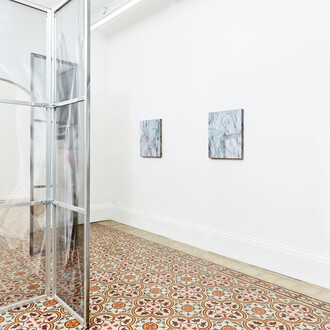During the opening in its new venues, The Address Gallery is delighted to present Break-in. Temporal displacement, offering a generational glimpse into a fragment of the Italian artistic scene of the nineties. With the involvement of Francesco De Bernardi, Andrea Bocca, Marina Cavadini, Beatrice Celli, Francesco Cima, Lucia Cristiani, Davide Dicorato, Nicola Ghirardelli, Lorenzo Lunghi, Giuseppe Di Liberto, Edoardo Manzoni, Ludovico Orombelli, Luca Marcelli Pitzalis, Gaia De Megni, Leonardo Meoni, bn + Brinanovara, Marco Rigoni, Giuliana Rosso, Virginia Russolo, Riccardo Sala, Adelisa Selimbasic, Valentina Parati.
Break-in. Temporal displacement, curated by Arnold Braho, from an original idea by The Address, is a reference to a double time-lag: on one hand the need for a breach into the spaces of the gallery by the artistic scene, on the other hand the symptom of an arrhythmia, which is constantly looking to match the rhythm of memory, of nature, as the dissent and the escape from an institutional system that seems to be paralyzed.
What seems clear from the start, within this time-lag, is the ongoing effort by the practices of the artistic subject on display, at the reliance on devices able to assess the memory and provide emblematic counter-models. The sabotage of tools of violence like weapons and pitfalls, the refusal of time itself in its 24/7 shape, highlighting the psychologic symptomatology; otherwise proposing maps and images that are rooted in the pursuit of a guidance, through natural elements and storylines, practices bend to abandoned traditions which have lost every symbolic significance.
Therefore, if there’s no time common to different places, there’s not even a unique time in a single space. And if the time itself does not depend upon where we’re located, nor from the proximity of the masses, it does depend upon the rhythm in which we move in a certain time and place. A subjective rhythm which inevitably must come to grips with a historical, aesthetical, social and political inflexibility. Since the change can create the essence of an era, it is not given nor could be anticipated or delayed. It can only be formed through certain values that constitute a historical awareness of the subject, a conscience, albeit negative and productive, able to form the critical centre of society, able to express the possibility of a real antagonism towards it.














